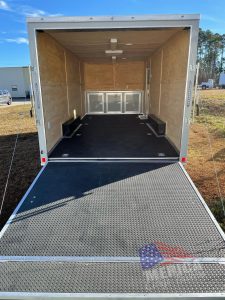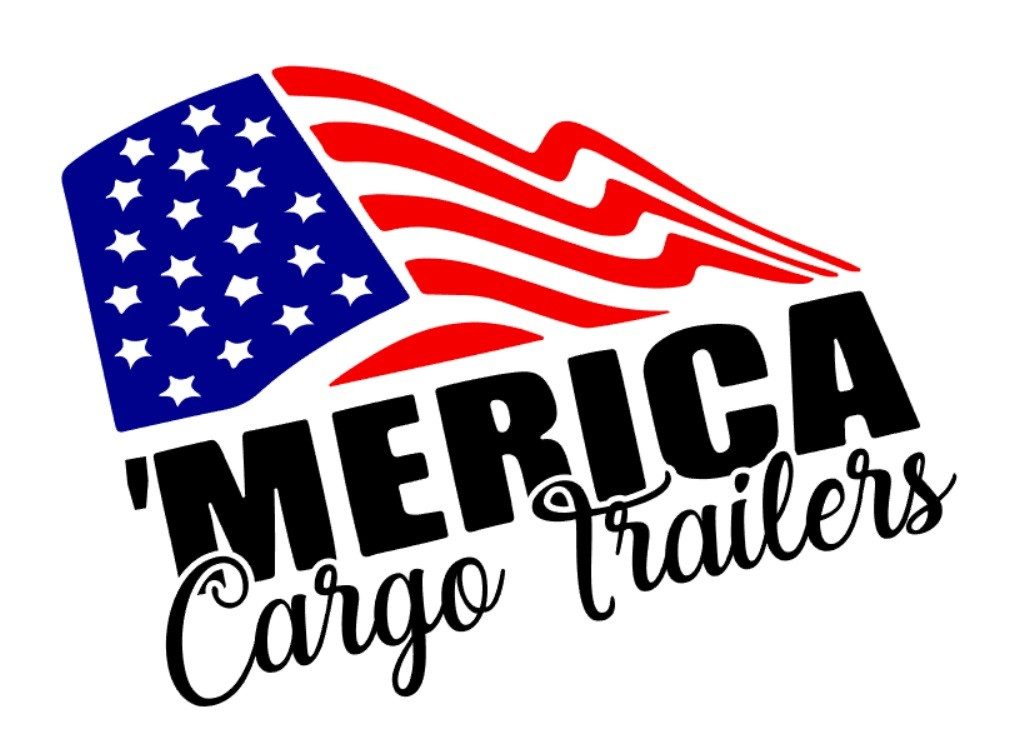A Buyer’s Guide to Cargo Trailers: Hauling Your Possessions with Confidence
Whether you’re moving to a new place, starting a business, or simply need a reliable way to transport goods, cargo trailers are versatile assets that can streamline the process. However, with the wide array of options available, it’s important to navigate the world of cargo trailers with knowledge and careful consideration. This buyer’s guide to cargo trailers will help you make an informed decision when purchasing a cargo trailer that suits your needs.

1. Assess Your Cargo Needs
Before diving into the specifics of cargo trailers, take a moment to assess your cargo needs. Consider the types of items you’ll be transporting, their size, weight, and any special requirements. Having a clear idea of your cargo’s characteristics will guide your trailer choice.
2. Choose the Right Size and Capacity
Selecting the appropriate size and weight capacity of your cargo trailer is paramount. A trailer that’s too small might lead to cramped or damaged cargo, while an oversized trailer could result in unnecessary fuel consumption. Ensure that the trailer’s dimensions and weight rating align with your intended use.
3. Trailer Types for Cargo Hauling
Various types of cargo trailers cater to different needs:
- Enclosed Cargo Trailers: These trailers provide all-around protection for your belongings, shielding them from the elements and potential theft. They’re suitable for moving valuable items or transporting goods that require security and climate control.
- Utility Cargo Trailers: Open-air utility trailers are versatile options for hauling larger items like furniture, appliances, or landscaping equipment. They offer convenience and ease of loading and unloading.
- Specialized Cargo Trailers: Depending on your cargo, you might opt for specialized trailers, such as those designed for motorcycles, ATVs, or even concession stands. These trailers come with custom features to accommodate specific requirements.
4. Consider Trailer Material
Cargo trailers are typically constructed from aluminum or steel. Aluminum trailers are lighter and resist rust, making them ideal for long-term use. Steel trailers are more robust and can handle heavier loads, but they might require more maintenance to prevent rust.
5. Axles and Suspension
The number of axles and the type of suspension your trailer has will impact its load-bearing capacity and stability. Tandem axles (two axles) offer greater weight distribution and stability for heavier loads, while single-axle trailers are suitable for lighter cargo.
6. Braking Systems
For larger and heavier cargo trailers, having a reliable braking system is crucial for safety. Make sure the trailer is equipped with appropriate brakes, whether they’re surge brakes or electric brakes.
7. Door Types and Entry Points
Consider the type of doors or entry points that will make loading and unloading your cargo most convenient. Cargo trailers usually have rear doors that can swing open or ramp doors for easy access.
8. Security Features
Security should be a priority, especially if you’ll be transporting valuable items. Look for trailers with sturdy locks, reinforced hinges, and additional security measures like wheel locks or GPS tracking systems.
9. Insulation and Ventilation
If you’re transporting items that require a specific climate, such as perishable goods or delicate equipment, consider trailers with insulation and ventilation options to regulate temperature and humidity.
10. Budget and Quality
Set a budget that takes into account not just the trailer’s purchase price, but also potential modifications, accessories, and ongoing maintenance costs. While it’s important to stay within your budget, investing in a higher-quality trailer can pay off in the long run through durability and reduced maintenance.
11. Research and Visit Dealerships
Take the time to research different trailer manufacturers and visit local dealerships to see trailers in person. Speaking with experts can provide valuable insights and help you make an informed decision.
12. Warranty and After-Sales Support
Choose a reputable dealer that offers warranties and after-sales support. This ensures you have recourse in case of manufacturing defects and access to maintenance and spare parts.
Purchasing a cargo trailer is a significant investment, and selecting the right one requires careful consideration of your cargo needs, trailer type, features, and budget. By following this comprehensive buyer’s guide to cargo trailers, you’ll be well-prepared to find the perfect cargo trailer that meets your requirements and ensures hassle-free hauling for years to come. For more information, check out Georgia DOT’s blog.
